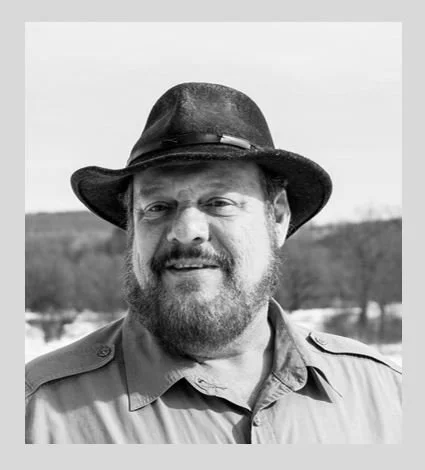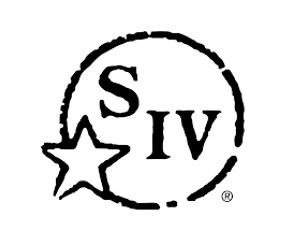Dave Pickerell
David Steven Pickerell (August 14, 1956 - November 1, 2018) was an American Chemical Engineer turned Master Distiller. He is credited as the founding father of the craft distilling movement and helped shape the modern American distilling industry as we know it. He once had the nickname “The Johnny Appleseed of American Whiskey” for the multitude of distilleries whose development he played a role in.
Dave was born in the Dayton suburb of Fairborn, Ohio, to his Dick and Georgia Lynn Pickerell. From early on, he was a very inquisitive child. During Sunday drives with the family, he would ask his father questions about all of the factories and warehouses they would pass. His father’s response was always, ‘The only person who can answer that is a Chemical Engineer.’ This answer led Dave to decide, by the age of 5, that his career path in life would be that of a Chemical Engineer.
Growing up, Dave knew that to attain his career in chemical engineering, he would need to attend college. He also knew that he would have to find a way to pay for his schooling, and he knew that his family did not have the means to do so. Dave was very athletic, so he chose to lean on that and seek an athletic scholarship. He was the all-state karate champion for the state of Colorado. In high school, he held multiple Track-and-field records and made first-team all-state in Football. He was offered multiple scholarships, but the two schools that interested him the most were the Citadel in Charleston, SC, and the United States Military Academy in West Point, New York. He chose West Point for its academic reputation, where he played as a member of the Army Cadets football team during his freshman year in 1974.
Dave graduated from West Point in 1978 with a Bachelor of Science degree in Chemistry. After graduation, he was commissioned as a Second Lieutenant in the United States Army. In 1986, while still serving, he attended the University of Louisville’s School of Engineering and obtained a Master's Degree in Chemical Engineering. After graduation, he returned to West Point to teach chemistry.
In 1989, Dave decided that he wanted to pursue his dream of being a Chemical Engineer outside of the Army. After 11 years of service, he resigned his commission at the rank of Major. Dave immediately reached out to organizations all over the world and was presented with almost 60 job offers. He contacted his mentor, Dr. Charlie Plank, for a letter of reference, and to his surprise, was denied. Instead, Dr. Plank did something he had never done before and told Dave where he was going to go to work. Dr. Plank directed him to an opportunity that was a perfect match for his skill set. The job was for a company called Ro-Tech Inc., located in Kentucky, doing Engineering work for beverage alcohol companies worldwide. Dave took his mentor’s advice and decided to pursue the opportunity. He was given the job and spent the next 5 years traveling the globe, consulting for and completely building many businesses in the alcoholic beverage world. He worked with dozens of whiskey distilleries, including almost all of the major bourbon distilleries in Kentucky and Tennessee, as well as several Canadian distilleries, breweries in the Dominican Republic, tequila distilleries in Mexico, Scotch whisky distilleries, and even the Shandong General Alcohol Distillery in China.
In 1994, Dave was consulting at the Maker’s Mark distillery when he was approached by then CEO, Bill Samuels, Jr. Samuels informed Pickerell that they were looking for a Master Distiller and VP of Operations. Samuels stated that they had exhausted the pool of candidates without finding any suitable to their liking, but that they did like Dave, and the job was his if he wanted it. Dave accepted the position and spent the next 14 years growing both Maker’s Mark and himself professionally. During Dave’s tenure at Maker’s, the distillery increased its production capacity by twenty times to become the third best-selling bourbon in America.
Dave wanted to work more with craft distilleries, especially in rye whiskey production, so in 2008, he left Makers and went to work at his own consulting company, Oak View Spirits. Through his company, he built many distilleries from the ground up and consulted for dozens more existing distilleries all over the world. For many of the new distillers he worked with, he offered his services pro bono. He wouldn’t work with just anyone willing to hire him though. Dave had a set of three rules his potential partners had to meet: 1 – No jerks; 2 – Have a sound business plan; 3 – Be a learner. Dave believed in his chosen partners and wanted to help them maximize their potential, not just make a buck off them from consulting, and the fruits of their labor always showed it. Some of just the Craft distilleries, that Dave has worked with include Rhode Island’s The Sons of Liberty; The George Washington Mount Vernon Distillery, Belmont Distillery, Copper Fox, and Ragged Mountain distillery in Virginia; High Wire in South Carolina, Asheville Distillery, and Troy and Sons in North Carolina; Saint Augustine Distillery in Ford; Louisiana Spirits Bayou Rum in Louisiana; Tennessee’s Short Mountain, Ole Smoky, Popcorn Sutton, Corsair, Nelson’s Green Brier, and Tenn South Distilleries; Rocktown in Arkansas; Old Pogue in Kentucky; Watershed in Ohio; Two James in Michigan; Illinois’ Chicago Distillery, FEW, Whiskey Acers, and Blaum Brothers; Driftless Glen in Wisconsin; Panthers Distillery, and Far North Distillery in Minnesota; Firestone & Robertson, and Garrison Brothers in Texas; Dark Horse Distillery, J. Rieger and Co. in Kansas; and Woodinville in Washington.
One of Dave’s favorite projects was the George Washington Mount Vernon Distillery. He liked it so much that he had a tattoo of the still used in the distillery on the underside of his forearm. In the distillery’s rebirth, Dave led a team of Master Distillers and Historians to restore and open the facility as a working 18th-century style distillery at the original site used by President Washington. The distillery’s history was important to Dave, and the Mount Vernon location dates well into America’s past. Beginning in 1798, the year before his death, George Washington produced rye whiskey and brandy at the Mount Vernon location. The original facility burned down in 1814. The original gristmill next to the distillery was purchased and restored by the Commonwealth of Virginia in 1932, but the distillery was left untouched due to Prohibition. The excavation and restoration of the distillery began in 2000 with the help of a $2.1 million grant from the distilled spirits industry. The distillery was dedicated in the fall of 2006 and opened publicly in March of 2007. Dave remained the Master Distiller there until his death in 2018.
Dave was also the Master Distiller at the Hillrock Estate distillery for almost a decade before his passing. He worked with owners Jeffery Baker and Cathy Franklin to make Hillrock Estate one of the few “field-to-glass” producers in the world. When he joined the team, he created everything operation-wise for the organization and helped open its doors in 2011. They produce multiple products, including several award-winning whiskies and the first Solera Aged Bourbon.
In 2009, Dave partnered with entrepreneur Raj Bhakta and began work creating the WhistlePig brand and distillery. The goal of the new venture was to bring authentic rye whiskey back to America, along with creating the finest rye whiskeys the world had seen. He took the position of Master Distiller and helped usher in the opening of the distillery in 2015. The distillery has since won multiple awards, including Best Rye Whiskey at the 2021 San Francisco World Spirits Competition. They have taken on the moniker of The World’s Most Awarded Rye Whiskey. WhistlePig was a passion project for Dave, and it shows in its quality. One of their limited edition whiskies is The Boss Hog. During the release party for each edition, Dave was a sight to see as he would dress in an all-white suit and hat, mimicking that of Boss Hog from The Dukes of Hazzard.
One of the last projects Dave took on before his passing was his work with the band Metallica. He was commissioned by the band and collaborated with members to produce their first whiskey release, an American blended whiskey by the name of Blackened. Blackened is a blend of straight bourbons and rye whiskies sourced from throughout North America that are married and then finished in Spanish black brandy casks. The finish is unique, though, in that instead of just resting until maturity, the casks are pummeled with ultra-low hertz sound waves by Metallica’s music being played. The frequencies cause the spirit to be more interactive with the oak. It sounds like a marketing gimmick, but spectroscopy and gas chromatography readings, as well as blind-tasting tests, were all used in validating the maturation efforts before the process was put into full production. As with everything Dave worked on, his passion is shown in this whiskey. It is not just another celebrity-endorsed cash grab, but an alluring artwork that carries his name on every bottle. Out of the hundreds, possibly even thousands of products he had his hands in, Dave is on record saying that Blackened will be his legacy whiskey. The collaboration was more than just a partnership. Metallica bandmates have said on numerous occasions that Dave wasn’t just a partner, a mentor, and a friend, but also a member of the band.
Dave was a longtime member of the Kentucky Distillers’ Association (KDA), serving roles in the past including Director, Chair, and as a member of the technical committee. He was instrumental in the relaunch of the KDA as a full-time organization in 2007. The KDA was originally established in 1880 and is still the only non-profit association dedicated to Kentucky's legacy in Bourbon.
Dave was a larger-than-life figure who touched many in and out of the spirits industry. He was rarely seen without his signature hat, usually a grey wool Pendleton or soft brown Stetson, and always had a story to share. In one of his last interviews, Dave stated that he had built over 50 distilleries from the ground up and consulted for over 50 more. He said that distilling was in his blood, ringing true from the fact that he was the great-grandnephew of Colonel E.H. Taylor himself. Dave was inducted as number 56 into the Whisky Magazine Hall of Fame.
In 2018, while in San Francisco, California, to attend WhiskyFest, Dave passed away at the age of 62 from hypertensive heart failure. His legacy lives on in the spirit of American craft distilling and the whiskey industry as a whole to an extent that may never be known.




